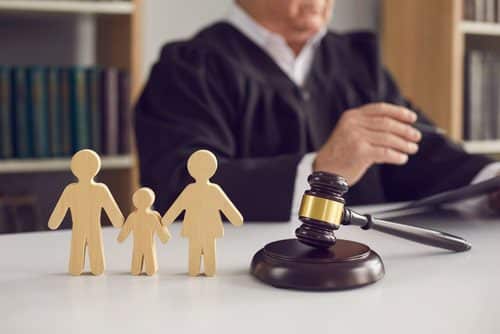When a couple gets a divorce, it is common to discuss what the custody of their children is going to be. Which parent will they live with primarily? Which parent is going to get visitation? Are they going to split custody between them equally?
What happens to the grandparents of the children is not discussed as much. When your son or daughter decides to divorce their spouse, you may see your grandchildren less often. And if there is some conflict or tension with the custodial parent, it might even get to the point where you see your grandchildren very little or not see them at all.
If this is your case, you should know that being properly informed is crucial for advocating for your rights. This guide will give you a clear overview of your rights as a grandparent and the action you can take to stay in your grandchildren’s life after a divorce.
What Are Grandparent’s Rights?
“Grandparent’s rights” is the common term used to refer to any legal visitation or custody awarded to grandparents. In most states, grandparents do not have automatic legal rights to see their grandchildren after a divorce. Still, if they have a good relationship with the custodial parent(s), they will usually allow them to spend time with their grandchildren.
But, if the grandparent’s child lost their parental rights or custody of the child was given to someone other than the parents, it could be challenging to find common ground.
Fortunately, there is a statute in Minnesota that defines the rights grandparents can pursue in court after their son or daughter’s divorce, so they can continue being part of their grandchildren’s life.
There are a few ways the court might see fit to grant visitation or even custody of a child to their grandparents. We’ll go over them below.
Visitation Rights

Visitation means that the court has ordered that a grandparent (or both) has the right to spend time with a grandchild for a set amount of time.
This usually occurs when the grandparent’s child dies or doesn’t have custody of their son or daughter. As the custodial parent is not legally obliged to let the grandparents visit their grandchildren, the grandparents can make a request for court-ordered time to spend with the child.
If the grandparents can prove that it is in the child’s best interests to visit with them and that their visits would not interfere with the relationship with their parents, the court may order some visitation time. It’s important to note that this would not give the grandparents any legal rights over the child, only time to spend with them.
Third-Party Custody
Third-party custody occurs when anyone other than the parents gets legal or physical custody of a child. It is not something that happens lightly, and several requirements must be met before it is considered.
Third-party custody is usually only granted if proven the child is not properly cared for by their parents. Grandparents can pursue this type of custody at court in two ways: as a de facto custodian or as an interested third party.
To be awarded de facto guardianship, the grandparents will have to prove that they have been the primary caregiver and:
- If the child is under three years old, they have been living primarily with the grandparents for at least six months.
- If the child is over three, they have lived with the grandparent for more than a year.
De facto guardianship may also apply if the parent has failed to cover the child’s basic needs, such as food, water, shelter, and clothing, and has not taken the steps toward keeping them physically and mentally healthy.
The grandparents could be looked upon as an interested third party if they have a solid relationship with their grandchild and can prove the parents are incapable of providing the minor appropriate care, or the child would be in danger physically or emotionally in the custody of their parents.

So, What Should I Do?
If you are a grandparent and your child has decided to get a divorce, you should know that your rights are not the same as those of the parents. If there is no neglect or abuse involved, you will have to prove that your visitation is beneficial to the child. But there is always hope that the court will see that the child would be better off with a relationship with their grandparents.
There are a lot of details to pay attention to when it comes to visitation and custodial law. Most grandparents do not know what steps to take when these issues arise. You want to see your grandchild and be part of their life. That is why finding someone who knows about grandparent’s rights in Minnesota and letting them guide you is so important.
Our lawyers at CJB Law have the experience and professionalism to deal with these kinds of claims. We can help you get visitation or even adoption rights in certain cases. If you have a case that we can assist you with, please contact us for a free case evaluation today.

